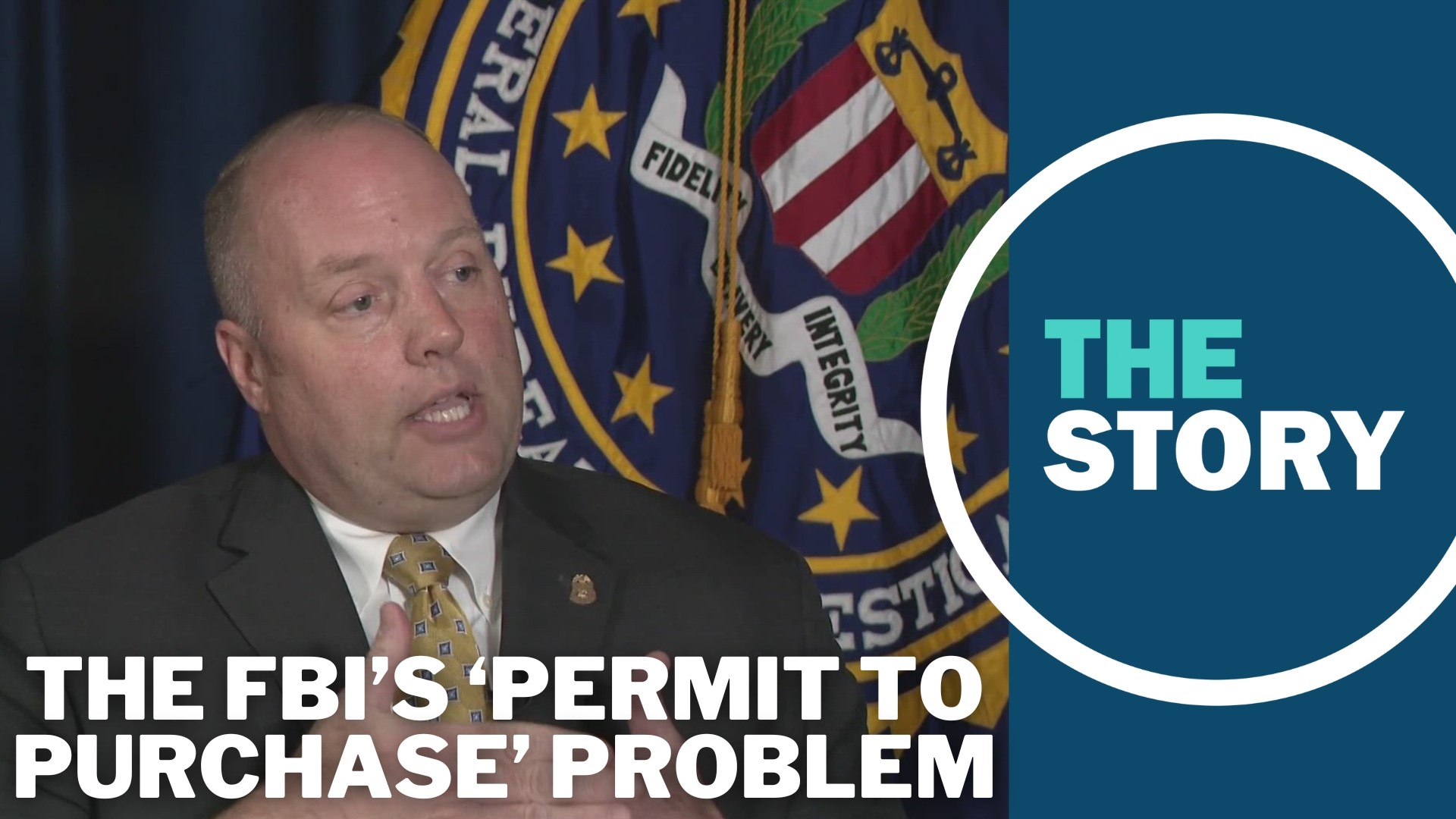PORTLAND, Ore. — As of Tuesday afternoon, the fate of the Oregon gun control law narrowly passed by voters in 2022 as Measure 114 still hung in the balance as a state judge in Harney County continued deliberations. He will determine whether the law violates the Oregon Constitution — and in the meantime, enforcement of the law remains on hold.
But even if the judge decides that Measure 114 is constitutional, it could still be in trouble. It isn't a matter of appeals, which seem an inevitability no matter how he rules, but because a key component of the law could fall flat on its face even if it's allowed to take effect.
Measure 114 requires that the FBI conduct background checks as part of the "permit to purchase" process for prospective gun owners. But the word on the street is that the FBI isn't playing ball.
The Story's Pat Dooris recently spoke with Kieran Ramsey, the FBI's Special Agent in Charge of Oregon. He said that the bureau wants to help, but they're constrained by a federal law that dictates which groups it can share criminal background information with. So unless or until some of Measure 114's wording is changed, their hands are tied.
"In Section 4 of Measure 114 it says that it authorizes state and local agencies, specifically state and local law enforcement agencies, to receive this criminal background information — and then it adds, or their 'designee,'" Ramsey said.
That little word, "designee," is a big problem for the FBI.
"We can't define the word designee because the only agencies that we are allowed to share our criminal investigative background information is with, in fact, state and local government agencies," Ramsey said. "Generally speaking, that's law enforcement agencies, but it could be other government agencies. But in this case that word 'designee' is an issue. Could that be a private party?"
"And that's where this becomes, again, very nuanced," Ramsey continued. "It's not about us not wanting to work with the Oregon State Police. I have a great relationship with the Oregon State Police. It's not about wanting to work with the sheriffs or the chiefs, we have phenomenal relationships across the entire state. It's not even about working with the state of Oregon — we work with, in fact, a lot of different agencies within the state of Oregon's government structure. It's simply (that) Measure 114 has to comport with public law 92-544."


The wording of Measure 114 is actually not quite as clean as Ramsey indicated, but here's what it does say. At the top of Section 4, it says "a person may apply for a permit to purchase a firearm or firearms under this section to the police chief or county sheriff with jurisdiction over the residence of the person making the application ... "
If it had stopped there, the FBI would have been fine with conducting those checks, to hear Ramsay tell it. But it goes on to add "or their designees," which is what throws a monkey wrench into the machinery for the FBI.
Further down in the document, still under Section 4, Measure 114 adds that "the permit agent" — which can be law enforcement or the aforementioned designee, theoretically someone outside of law enforcement — "shall request the department to conduct a criminal background check, including but not limited to fingerprint identification, through the Federal Bureau of Investigation."
The FBI argues that if the law was followed to the letter, a designee unaffiliated with law enforcement or government could get the results of the criminal background check in violation of the federal law that Ramsay named.
Public law 92-544 was written to allow the FBI to help with running a national criminal background check for non-criminal licensing or employment purposes. It states right at the outset that "the FBI is empowered to exchange identification records with officials of state and local governments." The words are underlined.
This means that the FBI can conduct those checks for law enforcement and other government entities, but not a gun store, for example, or any other non-government entity.
That's not the end of the potential problems posed by Measure 114's interactions with public law 92-544. The latter states that the FBI can share records if authorized by state statute, but then it goes on to say that the state statute must exist as the result of a legislative enactment or its functional equivalent. The FBI's legal advisors are apparently still trying to decide if a referendum passed by Oregon voters is either a legislative enactment (probably not) or its functional equivalent (quite possibly).
Dooris asked Ramsey whether the FBI offered any advice to the people who drafted Measure 114 before the text was set in stone.
"So, generally speaking, and I don't want to speak to actual any ongoing discussions or even discussions before, but generally speaking, the FBI's Office of General Counsel and the Department of Justice make themselves very available when state laws such as this are being proposed," Ramsey said, "so I know that was the case here in Oregon, I know that's the case across the country because Oregon is not the only situation that something like this is being faced. My concern though has been this claim that the FBI is flatly refusing to do this — that's just not true."
"So what would Oregon's legislature have to do to make it OK?" Dooris asked.
"You know, I don't have a really solid answer for that just yet because, again, there still has to be some legal analysis and that's by big Department of Justice, big FBI, not the FBI here in Oregon," Ramsey offered. "But I think the ultimate goal still is, OK, where is 114 not easily comporting with that federal law, and let's make sure that that gets there and that there is no ability to claim that this is some lack of partnership on the part of the federal government, let alone the FBI, specifically towards our partners in the state of Oregon."
"You're saying, 'We'll do whatever we can, whatever the law will allow us to do?'" Dooris said.
"Exactly," Ramsey replied.
It's not an insurmountable problem — the Oregon Legislature often passes bills intended to work out some of the kinks in a voter referendum without substantially changing the nature of the thing, they did it with Measure 110 earlier this year. But it's yet another hurdle that the gun law faces in the coming months and years.
In July, Measure 114 survived a federal court challenge, but the plaintiffs in that case have pledged to petition the Ninth Circuit Court of Appeals in order to get a different outcome. And whether or not the state judge in Harney County decides to strike down or uphold Measure 114, it's very likely that the case will end up before the Oregon Supreme Court.

